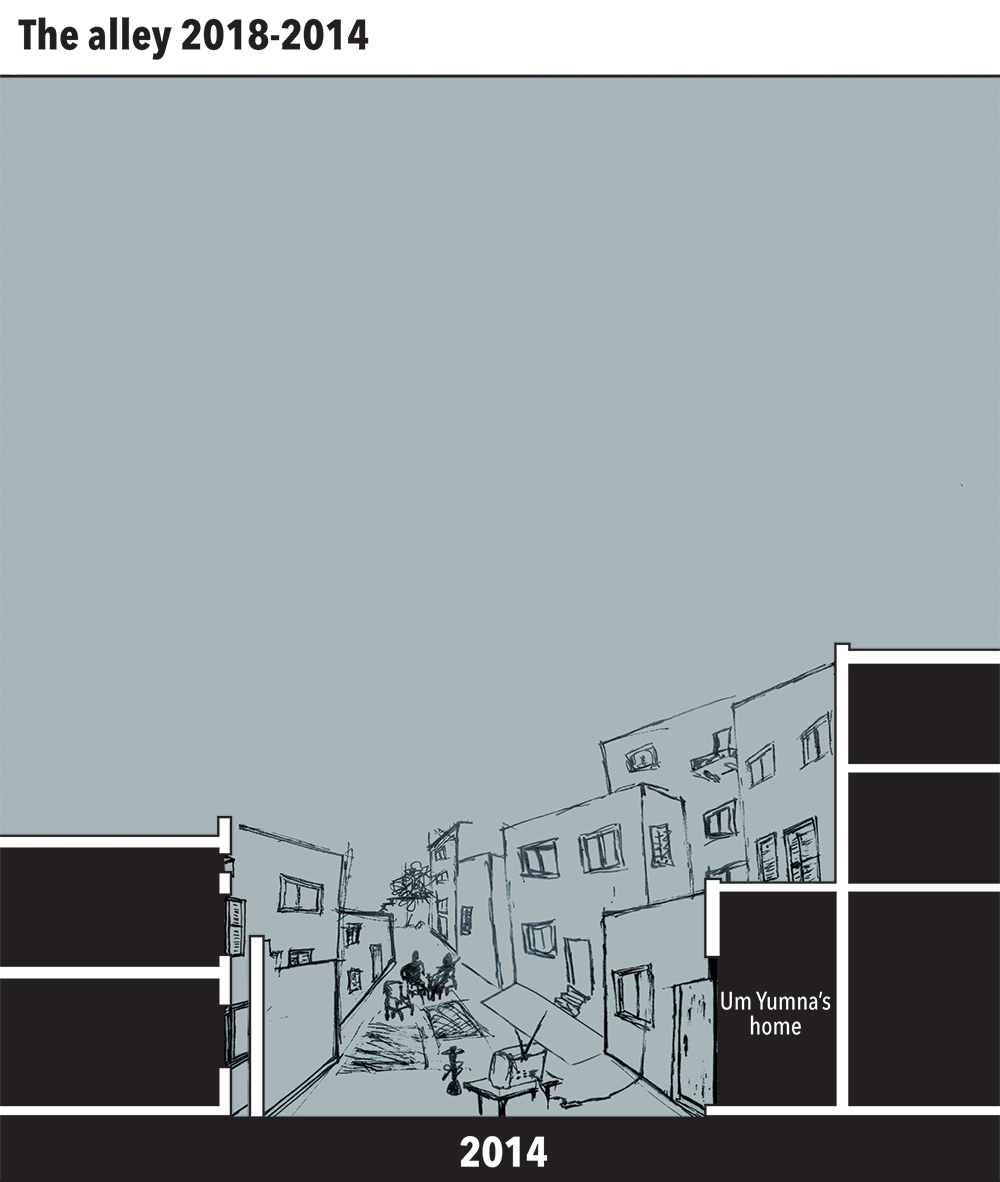“The trip to Sabra is Mama’s life”
Practicing the Neighbourhood
Yumna moved with her mother and her brothers to Barja. Because of her job, she drove from Barja to Beirut and back every day. The commute was exhausting, and after a series of bombings that shook Beirut’s suburbs in 2012, she decided to move back to Beirut. She chose a dormitory in the area of Tarik Al Jadidah.
Yumna describes the story of their eviction as suffering. Her father had died a long time before, but these events took their toll on her mother’s health. She remembers that her mother was hospitalized three times in the process. She grieves for the neighbourhood, which she describes as being like a village, not a neighbourhood of a modern city: “Everyone knew everyone.” She picks up a pen and draws the cul-de-sac. She tells one of her oldest memories from the days before the war: in the evenings, the girls of the neighbourhood would often wash the cul-de-sac and spread a blanket on the ground so that the neighbours could gather and enjoy watching a television that was brought outside. Um Yumna would go out every day in the morning to meet up with her neighbours on the cul-de-sac, and they would go down together to Imam Ali Mosque, to the Sabra market to bring home groceries. They would greet Um Abd and Um Ali and Um Hassan and stop for a morning gathering and coffee at their friends’ on the way there and back. “The trip to Sabra is Mama’s life,” Yumna says. “If she didn’t go to Sabra, she wouldn’t be Mama.”



